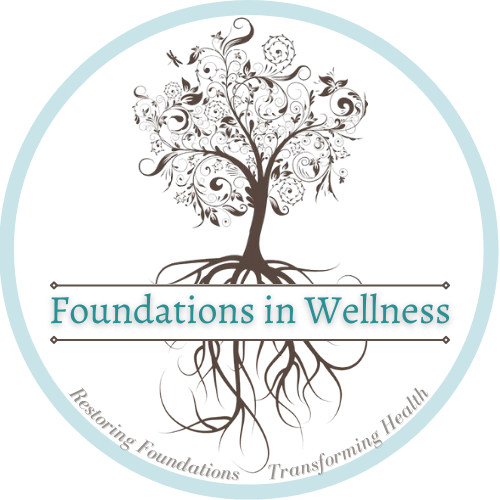Introduction
Navigating the complexities of Hashimoto’s Thyroiditis is akin to embarking on a journey without a clear map, where the terrain is unpredictable and the weather ever-changing. It’s a path walked by many, yet it feels profoundly personal, as each step forward is marked by a unique set of challenges and triumphs. For those of us in the throes of this silent struggle, the experience is not just about managing symptoms—it’s about grappling with the deep-seated frustrations that touch the very core of our being.
The thyroid is considered the master of metabolic function throughout the body –controlling metabolism at the cellular level. This is a major takeaway, because it is at this level that makes the difference if you’re feeling great or just pushing through. This is where most doctors fail to recognize your health challenge.
Our thyroid has a massive influence on a multitude of areas within our body:
- Body temperature
- Bone health
- Glucose metabolism
- Hormone metabolism
- Nutrient absorption
- Digestion/Intestinal motility
- Liver function/Detoxification
- Aging
- Cholesterol levels
- Fat metabolism
A Heartfelt Unveiling of Our Shared Struggle
The Unseen Battle with Fatigue
Imagine waking up each morning, feeling as though you’ve not slept at all. This fatigue isn’t just physical; it’s a profound exhaustion that seeps into your bones, clouding every thought and making even the simplest tasks feel insurmountable. It’s like walking through life with a heavy veil draped over you, dimming the vibrancy of the world around you.
The Rollercoaster of Symptoms
Hashimoto’s is a master of unpredictability. One day, you’re navigating through your responsibilities with grace, and the next, you’re ensnared in a web of brain fog, joint pain, and unexplained mood shifts. It’s a rollercoaster that doesn’t just affect your body but also sends ripples through your professional life and personal connections.
The Silent Struggle with Weight
For many of us, the relationship with our bodies becomes a battleground, where despite our best efforts, the scale refuses to budge. This struggle goes beyond aesthetics; it’s a constant reminder of the invisible fight our bodies are waging, adding layers of frustration and self-doubt to our daily lives.
The Quest for Balance
Finding the right treatment feels like searching for a beacon in the fog. Each adjustment in medication, each new supplement, is a step taken with hope, yearning for a semblance of balance that seems just out of reach.
The Cold Within
The persistent chill that no amount of warmth can dispel is a stark reminder of the internal imbalance Hashimoto’s brings. It’s an uncomfortable, constant companion, making us yearn for the warmth that seems so elusive.
The Fog That Mutes the World
Brain fog is perhaps one of the most disheartening symptoms. It’s not merely forgetfulness but a thick haze that clouds our thoughts, muffling our creativity and dulling our sharpness. It’s a barrier that stands between us and our fullest potential.
The Visible Signs of an Invisible Struggle
Witnessing the changes in our appearance, the thinning hair, and the tired eyes in the mirror can be a source of sorrow. It’s a visible testament to the silent battle we’re fighting, a battle that sometimes feels like it’s chipping away at our essence.
The Loneliness of Being Misunderstood
Perhaps one of the deepest cuts is feeling misunderstood by the world around us. Despite being surrounded by colleagues, friends, and family, there’s a solitude in knowing that they can’t fully grasp the magnitude of our daily battles.
The Impact on Our Bonds
Hashimoto’s doesn’t just affect us; it touches everyone we hold dear. The guilt of not being able to show up as we want to, for work, social gatherings, or even simple family time, can be a heavy burden to bear, shadowed by the fear of letting down those we love.
Facing Tomorrow with Courage
The uncertainty of what lies ahead can be daunting. Yet, it’s in this uncertainty that we find our strength, the resilience to face each day with courage, and the determination to carve out moments of joy and fulfillment.
The Role of Inflammation, Toxins, Stress, and Gut Health in Autoimmunity
Chronic inflammation, often simmering unnoticed, acts as a silent alarm that disrupts the body’s natural balance. This inflammation can be fueled by various sources, including environmental toxins from our daily lives, such as pollutants and certain chemicals in food and personal care products. These toxins can overload our system, pushing our immune response into overdrive.
Stress, too, plays a pivotal role. It’s not just the emotional burden we feel during tough times; it’s a physiological response that can exacerbate inflammation and weaken our immune defenses, making us more susceptible to autoimmune triggers.
Viruses, particularly the Epstein-Barr virus, have been linked to the onset of autoimmune diseases like Hashimoto’s. They can initiate an immune response that, in some cases, goes awry, leading to the body mistakenly attacking its own thyroid gland.
Lastly, the concept of “leaky gut” or increased intestinal permeability, where the lining of the small intestine becomes damaged, allowing undigested food particles and toxins to pass into the bloodstream, has gained traction. This can trigger an immune response, laying the groundwork for autoimmunity.
Understanding Hashimoto’s Thyroiditis means looking beyond the thyroid itself and considering the broader tapestry of factors that influence our health. By addressing these underlying issues, we can take proactive steps towards managing Hashimoto’s and fostering overall well-being. This approach not only empowers us with knowledge but also with the tools to navigate our health journey with confidence and grace.

Heal Your Thyroid Naturally: Embracing the Power of Nature’s Remedies
The Power of Nutrition: A Love Letter to Your Thyroid
Imagine your diet as a love letter to your thyroid, each nutrient-rich meal a testament to your commitment to nurturing your health. Foods rich in selenium, like Brazil nuts, and zinc, found in pumpkin seeds, whisper promises of care to your thyroid, supporting its function and helping reduce inflammation. Yet, the shadow of gluten looms large for many with thyroid issues, often exacerbating symptoms. The story of Emily, who found relief from her unrelenting fatigue and brain fog by embracing a gluten-free diet, serves as a beacon of hope for many. Her journey reminds us that sometimes, love requires letting go—of gluten, in this case—to find true healing.
The Serenity of Stress Management: A Journey to Inner Peace
Stress, the silent thief of health, can exacerbate thyroid dysfunction, leading to a cascade of symptoms that dampen your spirit. But imagine transforming stress into a wellspring of peace through the art of mindfulness and yoga. Picture Sarah, a high-powered executive, who found solace in the gentle embrace of prayer, a practice that not only eased her stress but also subtly improved her thyroid markers. Her story is a testament to the power of finding calm amidst the chaos, a gentle reminder that peace is a choice we can make every day.
The Healing Rhythms of Sleep: A Lullaby for Your Thyroid
In the quiet of the night, as the world around you slips into slumber, your thyroid embarks on its nightly journey of repair and rejuvenation. Yet, for many, sleep is a fleeting dream, chased away by insomnia and restless nights. Consider the tale of Mark, whose battle with sleeplessness left him exhausted and his thyroid health in disarray. It was only when he embraced the sanctity of sleep hygiene—setting a nightly routine, dimming the lights, and turning off his devices—that he finally found rest. His journey to reclaiming his nights brought with it a newfound vitality, a reminder that each night’s rest is a building block for health.
The Vitality of Movement: A Dance with Nature
Movement, in its many forms, is a celebration of life, a natural elixir that invigorates the body and soothes the soul. For those with thyroid issues, the thought of exercise can be daunting, overshadowed by fatigue and joint pain. Yet, there’s inspiration to be found in Anna, who, despite her Hashimoto’s, found joy in the gentle flow of pilates. Her story is a dance of resilience, showing us that movement, when tailored to our body’s needs, can be a powerful ally in our journey to wellness.
The Community of Support: A Tapestry of Connections
In the journey of health, we are never truly alone. The support of a community, whether found in support groups, online forums, or with loved ones, can be a lifeline. It’s in the shared stories, the collective wisdom, and the understanding nods that we find strength. Like John, who felt isolated in his struggle until he reached out to a thyroid support group, like ours, discovering not just information but also camaraderie and hope. His story is a reminder that in the tapestry of life, each thread of support is invaluable.
As you stand at the crossroads of decision, the path to improving your thyroid health naturally beckons with a promise of renewal and vitality. It’s a journey not without its challenges, but one that is rich with the potential for transformation. The stories of those who have walked this path before us serve as beacons of hope, guiding lights in the pursuit of wellness.
Embracing natural strategies for thyroid health is an act of courage, a declaration of your commitment to nurturing your well-being. It’s a journey worth embarking on, with each step forward a testament to your resilience and strength. Remember, in the symphony of health, your actions are the melody that can bring harmony to your life. Let this be the moment you choose to dance to the rhythm of healing, guided by the wisdom of nature and the warmth of community.
Practical Applications You Can Begin Now
Here are a few simple and effective strategies that are grounded in research and can be easily implemented:
1. Adopt an Anti-Inflammatory Diet
AIP (Autoimmune Protocol) Diet: The AIP diet is designed to reduce inflammation and alleviate autoimmune symptoms by eliminating potential food triggers. A study published in the journal “Inflammatory Bowel Diseases” found that participants with autoimmune conditions experienced significant improvements in their symptoms after following the AIP diet. Start by eliminating grains, legumes, nightshades, dairy, eggs, nuts, seeds, and processed foods for a few weeks, then gradually reintroduce them to identify potential triggers.
Paleo Diet: Similar to the AIP diet but less restrictive, the Paleo diet focuses on whole foods, lean proteins, fruits, vegetables, nuts, and seeds, excluding grains, legumes, and dairy. Research suggests that the Paleo diet can help reduce inflammation and improve symptoms in autoimmune disease patients by focusing on nutrient-dense foods and eliminating processed items and sugars.
2. Incorporate Selenium and Zinc
Selenium: Selenium is crucial for thyroid function and reducing autoimmunity against the thyroid. A study in the “Journal of Clinical Endocrinology & Metabolism” showed that selenium supplementation could reduce thyroid peroxidase antibody levels in patients with Hashimoto’s. Foods rich in selenium include Brazil nuts, sunflower seeds, and fish.
Zinc: Zinc plays a vital role in thyroid hormone metabolism. Zinc deficiency is associated with hypothyroidism. Including zinc-rich foods like oysters, beef, and pumpkin seeds in your diet or considering supplementation can support thyroid health.
3. Utilize Herbs and Botanicals
Ashwagandha (Withania somnifera): This adaptogenic herb can help balance thyroid function and reduce stress, which is particularly beneficial for those with Hashimoto’s. A study published in the “Journal of Alternative and Complementary Medicine” found that ashwagandha improved thyroid indices in patients with hypothyroidism.
Turmeric (Curcumin): Known for its anti-inflammatory properties, turmeric can help reduce thyroid gland inflammation. Curcumin, the active compound in turmeric, has been shown to modulate the immune system, potentially benefiting autoimmune conditions like Hashimoto’s.
4. Focus on Gut Health
The gut-thyroid axis plays a crucial role in autoimmune thyroid diseases. A healthy gut can help reduce autoimmune reactions. Incorporate probiotics, either through supplements or fermented foods like sauerkraut and kimchi, to support gut health. A study in “Frontiers in Immunology” highlighted the importance of gut microbiota in regulating immune responses, which can impact autoimmune diseases.
Implementing These Strategies
Start with one or two changes rather than overhauling your diet and lifestyle all at once. For example, you might begin by introducing more selenium-rich foods into your diet and experimenting with the AIP or Paleo diet for a few weeks. Monitoring how your body responds to these changes can provide valuable insights into what works best for you.
Conclusion
As we gently close the chapter on our exploration of Hashimoto’s Thyroiditis, it’s important to remember that within every challenge lies a seed of opportunity. The journey through Hashimoto’s is undeniably complex, woven with threads of uncertainty, frustration, and discovery. Yet, it is also a journey that calls upon the deepest reserves of our strength, resilience, and hope.
Embracing the path to understanding and managing Hashimoto’s is akin to navigating a river that twists and turns — there are moments of calm and stretches of rough waters. But with each bend, there’s a chance to learn more about ourselves, to grow stronger, and to cultivate a sense of peace amidst the storm. The strategies we’ve discussed, from nurturing our bodies with anti-inflammatory foods to engaging in gentle, restorative exercises, are lanterns that light our way, guiding us toward a state of balance and well-being.
Let this journey be a testament to your courage and your unwavering spirit. Remember, you are not walking this path alone. There’s a community of souls, each with their own stories of struggle and triumph, ready to walk alongside you, offering a hand to hold and a heart that understands.
As you move forward, let hope be your compass and knowledge your map. The road to managing Hashimoto’s may be paved with challenges, but it is also lined with moments of profound beauty and strength. With each step, you’re not just moving towards better health; you’re reclaiming the vibrant essence of who you are.
So, take a deep breath, dear reader, and step forward with confidence. Your journey through Hashimoto’s is a journey of transformation — a journey that, with patience, perseverance, and self-compassion, can lead you to a place of greater health, happiness, and peace. Here’s to your health, to your journey, and to the bright future that awaits you. Together, let’s embrace the promise of a new dawn, filled with hope and endless possibilities.


